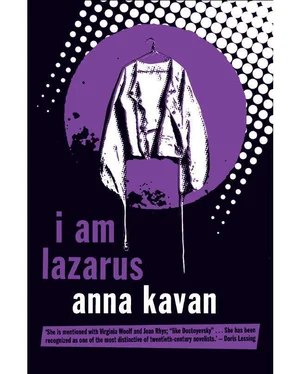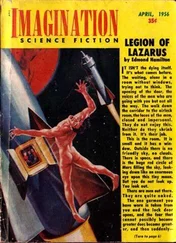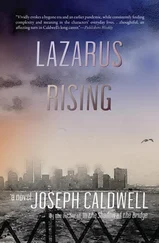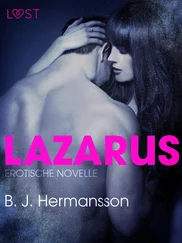Anna Kavan - I Am Lazarus
Здесь есть возможность читать онлайн «Anna Kavan - I Am Lazarus» весь текст электронной книги совершенно бесплатно (целиком полную версию без сокращений). В некоторых случаях можно слушать аудио, скачать через торрент в формате fb2 и присутствует краткое содержание. Год выпуска: 2013, Издательство: Peter Owen Publishers, Жанр: Современная проза, на английском языке. Описание произведения, (предисловие) а так же отзывы посетителей доступны на портале библиотеки ЛибКат.
- Название:I Am Lazarus
- Автор:
- Издательство:Peter Owen Publishers
- Жанр:
- Год:2013
- ISBN:нет данных
- Рейтинг книги:3 / 5. Голосов: 1
-
Избранное:Добавить в избранное
- Отзывы:
-
Ваша оценка:
- 60
- 1
- 2
- 3
- 4
- 5
I Am Lazarus: краткое содержание, описание и аннотация
Предлагаем к чтению аннотацию, описание, краткое содержание или предисловие (зависит от того, что написал сам автор книги «I Am Lazarus»). Если вы не нашли необходимую информацию о книге — напишите в комментариях, мы постараемся отыскать её.
Julia and the Bazooka
Asylum Piece
I Am Lazarus — читать онлайн бесплатно полную книгу (весь текст) целиком
Ниже представлен текст книги, разбитый по страницам. Система сохранения места последней прочитанной страницы, позволяет с удобством читать онлайн бесплатно книгу «I Am Lazarus», без необходимости каждый раз заново искать на чём Вы остановились. Поставьте закладку, и сможете в любой момент перейти на страницу, на которой закончили чтение.
Интервал:
Закладка:
Anna Kavan
I Am Lazarus
FOREWORD
First published in 1945, I Am Lazarus was Anna Kavan's second collection of stories under her new name. Having previously published under the name Helen Ferguson, by this time she had begun using Anna Kavan (the name of one of her fictional characters) in all areas of her life. Readers familiar with her work will find echoes of the dystopian world of Asylum Piece and the hallucinatory, apocalyptic atmosphere of Ice . Written and set during the Second World War, the war not only provides a historical backdrop to the stories but shapes and saturates these narratives. On her return to England late in 1942, after more than three years travelling on five continents, Kavan was obliged to settle in London and find work. Her letters reveal that the Blitz-torn capital and the dull terror of everyday life there penetrated her self-assurance more profoundly than the far greater hazards she had risked in crossing the oceans. She writes of the relentless misery of the blackout, poor food and rationing and the atmosphere of terrible apprehension; she notes, ‘O, but it's dreary here, the war and the winter, the blackout, the dismal faces, the cold, the shabbiness, the feeling of death in the air’ (14 November 1943). We read these sentiments in the Lazarus stories, and in these fictional contexts Kavan's pacifism makes this a war without the possibility of a positive outcome. There is no right side to the conflict and no hope of victory; we see the human race destroying itself both physically and ideologically.
In 1943 Kavan worked at the Mill Hill Emergency Hospital in London, a military neurosis centre that was an outpost of the Maudsley Hospital during the war. The patients treated at Mill Hill were soldiers suffering from ‘effort syndrome’, known more colloquially as ‘soldiers’ heart’. Their symptoms included fatigue, shortness of breath on exertion and pains in the left side of the chest; the condition had previously been believed to be a form of cardiac disorder. However, these physiological symptoms were without physical cause, and ‘effort syndrome’ was now identified as a psychosomatic disorder — a type of war neurosis. The early method of community therapy practised at Mill Hill offered Kavan a unique opportunity to become directly involved with treatment, and the job allowed her, for a time, to swap the role of psychiatric patient for that of psychiatric worker. Her main task was to interview patients about their history and symptoms, and her letters reveal that she felt an uncharacteristic sympathy for the men with whom she spent time.
Kavan's experiences in working at Mill Hill were clearly a strong influence on the I Am Lazarus stories. ‘Who Has Desired the Sea’, ‘The Blackout’ and ‘Face of My People’ all take a hospitalized soldier suffering from war neurosis as their protagonist, but these are not the shell-shocked figures one might expect from war literature. The trauma of battle is not the sole cause of their psychological damage — childhood experiences and social circumstance play equal parts in their distress; war exacerbates old psychological wounds. Feelings of displacement and homesickness, the awful responsibility for the lives of others and the sight of so much pain and wasted life, these more than violence and bloodshed are the precipitants of the soldiers’ breakdowns. These are some of Kavan's most touching and finely rendered protagonists. Although they are unable to communicate their suffering to those around them, their emotional pain and depression are achingly palpable to the reader.
Cyril Connolly's offer of an assistant's job at the literary journal Horizon , which would allow her more time to write, prompted Kavan to leave Mill Hill after just four months. At Horizon she socialized with London's literary élite including Connolly, Peter Watson and Arthur Koestler, although her drug-taking and psychological instability sometimes made her unpopular. She published articles and literary reviews in the journal, as well as two of the stories in this collection. In ‘The Case of Bill Williams’ Kavan exemplified her ease in slipping across the boundaries between fact and fiction by presenting the character of Private Bill Williams, a fictional patient in a military psychiatric hospital, and persuading the psychiatrist Maxwell Jones and the psychoanalyst Edward Glover to comment on her imaginary character. We see the subversive Bill Williams reappear here in a cameo role in the story ‘Face of My People’. Kavan's interest in anarchistic politics is manifest in this article, and she mounts an attack on the normative standards of both the psychiatric profession and modern society as a whole, predicting that the fate of mankind is in peril unless ‘a tonic epidemic of madness blazes across the world like a comet’ (Horizon , No. 50, February 1944). This is Kavan's solution to the crisis of humanity — universal neurosis. Madness, for her, is not a disease but salvation, a resistance to conformity, and we see these sentiments echoed in the collection.
Kavan's critique of psychiatric confinement and treatments is clear in a number of these stories, especially those portraying the use of psychiatric drugs and prolonged narcosis, which she herself experienced. Thomas Bow, the Lazarus of the title story, has been revived from catatonia but remains institutionalized and isolated, an uncanny automaton acting out a conformity that he does not understand. Like the patients undergoing narcosis in ‘Palace of Sleep’, the treatment has not resurrected him to life; he is the walking dead.
Other stories locate disturbing experiences and emotional trauma outside the institution; ‘All Kinds of Grief Shall Arrive’ and ‘A Certain Experience’ evoke the Kafkaesque dystopia of Asylum Piece . In a world at war the layers of secrecy, bureaucracy and social control are further augmented, increasing the sense of inevitable doom and horror with which Kavan's characters live. Many of these protagonists are foreigners, dislocated and dispossessed, literal as well as metaphorical outsiders. Mystical birds materialize at the edges of their troubled psyche; not only portentous, they are vicious agents of destruction, metaphorical incarnations of the proliferation of air power during the war. Birds are nowhere more prominent in the collection than in the Hitchcockian horror story ‘The Gannets’, and the image of the sacrificial child in this chilling vision recalls some of Kavan's most striking artwork. Eyeless figures in poses of execution dominate her ‘dark’ paintings, many of which were apparently destroyed by her executors after her death.
There is no trace in these stories of the cultural myth of the Blitz; no collective spirit, no triumph of grit and resilience, no cheery motto of ‘We can take it’. Instead, Kavan's narrators are frightened and isolated figures, and her literary representations reveal the awful apprehension and emotional fragility of London's inhabitants during the Second World War. The air raids of ‘Glorious Boys’ and ‘Our City’ are the most graphic evocations of war here. In ‘Glorious Boys’ the narrator remembers standing in the street after a raid and feeling ‘the anguish of exploded walls, burst roof, torn girders wrenching away’. In ‘Our City’ what is at one moment outside the black windows, far away over the city, is in the next buzzing round the narrator's head, ‘scissoring through my nerves’ and ‘ultimately on top of me’. These nameless narrators feel the devastation wreaked on the city and its buildings as their own. Things play a prominent role in many of the Lazarus stories, and in the fantastic, war-ravaged world of ‘Our City’ they become genuine protagonists. During the raid the clock remains diligent and indefatigable, the bottles on the dressing-table snigger against one another, but the pale-blue carpet never turns a hair. Things conspire and delight in the narrator's fear, but they can also be her allies; her books are ‘honourable and precious’ to her, ‘like members of a suicide squad who do not hesitate to engage the enormously superior enemy, life, on my behalf’. Literature weighs into the battle, a salvation not from death but from life, revealing Kavan's belief in the redemptive qualities of fiction.
Читать дальшеИнтервал:
Закладка:
Похожие книги на «I Am Lazarus»
Представляем Вашему вниманию похожие книги на «I Am Lazarus» списком для выбора. Мы отобрали схожую по названию и смыслу литературу в надежде предоставить читателям больше вариантов отыскать новые, интересные, ещё непрочитанные произведения.
Обсуждение, отзывы о книге «I Am Lazarus» и просто собственные мнения читателей. Оставьте ваши комментарии, напишите, что Вы думаете о произведении, его смысле или главных героях. Укажите что конкретно понравилось, а что нет, и почему Вы так считаете.












